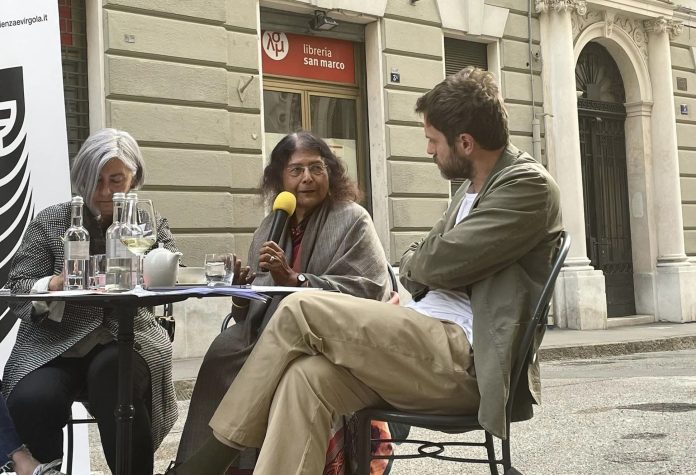by Edward Hunt
Professor Jasanoff was awoken early in February 2023 by an e-mail and then a telephone call informing her that she had been awarded the Holberg Prize for social science and humanities. Akin to the Nobel prize, and extremely prestigious, it is relatively unknown outside of the academic community. As she was reading the e-mail her husband was using Google to find out exactly what it meant. Not only does it recognise her work in the field of Science and Technology Studies (STS), but is also comes with a modest cash prize, most of which – she ruefully comments – has just been paid in US taxes.
STS is not a subject widely known. Professor Jasanoff is in Trieste as part of the Scuola Internazionale Superiore di Studi Avanzati (SISSA) Scienze e Virgola event, bringing together experts from differing but overlapping fields for a series of presentations on their areas of work. Her expertise is in what she terms as the intersection of traditional science, social sciences and philosophy, which in the UK is usually termed Philosophy of Science. It is not a subject easy to define, but is essentially the study and evaluation of how scientific research affects and is affected by wider human knowledge and understanding, how scientists police their own work and how non-scientists understand and use the output in the course of important decisions. COVID has thrown this into sharp relief.
Professor Jasanoff, born in India but whose father lived and worked predominantly abroad as a UN engineer, originally studied linguistics in Germany and then began her career in an American law firm. The latter experience she uses to express a key concept of the science / humanities interface of her current work: civil law usually looks to past actions and determines who was responsible so that the culpable can be held to account. By contrast her STS work is oriented towards the evaluation of what is being done today and what effect that might then have. She is therefore interested in what responsibilities we should now accept as to the potential future outcomes of our current endeavours.
A second major part of STS is to examine the relationship of scientific discovery and understanding in the context of a non-scientific environment. She feels that much media coverage of popular scientific themes, such as AI, is not often reported with great clarity or understanding. Yet these shape common perception. Such shallow stories then influence popular views and in turn political decisions in democratic countries. The differing national responses to – and acceptance of – policies regarding COVID is a salutary example. The scientists themselves may be working in good faith, but how their output interacts with the wider world is a more complicated subject. Who influences the decision makers, and do they understand the validity of this opinion and influence on their decisions?
Professor Jasanoff has a generally optimistic view of the future and the potential for better widespread understanding of what science is and is not. As the Renaissance helped dispel myth and superstition, so she feels that a second Renaissance – or perhaps more realistically a series of small advances in a similar direction – can help a wider appreciation of and better general connection with scientific learning. For her students, she sets a reading list that includes Kazuo Ishiguro’s Klara And The Sun concerning the intersection of evolved human development and pure robotic artificial intelligence. For her, social sciences and humanities are of importance in the wider balancing of traditional science because the former subjects enjoy the freedom of imagination. Hence for her, writers such as Ishiguro or Arthur C. Clarke are a useful reflection of and important contribution to the deeper questions that are raised by such scientific progress.
Following the popular movements of the 1960s and 1970s, she feels that wider interest in where science and technology are moving can be a powerful tool in the realisation that the planet and its global biosphere – rather than individual nations – must be the objective of future human efforts to manage the world. She is wary of social media’s powerful but unmanaged and ill-disciplined free-for-all (Freud’s ID) and what this represents. She accepts that this cannot be undone and hence is now a core part of the STS subject, reflecting that this is in part covered in the one of her favourite films, Forbidden Planet. Against this background, her efforts have a wider and more general calling towards advising popular imagining and comprehension. It is the necessary adjunct to the focused research within laboratories.
As critical as is the continued and vital efforts of the core scientific field, the evaluation of ‘why’ and ‘how’ their work is important and its effect remains the focus of STS. Depending upon advances in complex subjects such as AI or genetics, this may become of increasing significance both to inform and manage progress. It is not a subject easily encapsulated in a pithy sentence and it bridges many philosophical elements and paths of debate. As she commented while sitting in Trieste: “Italy brings out my reflective side”.





























